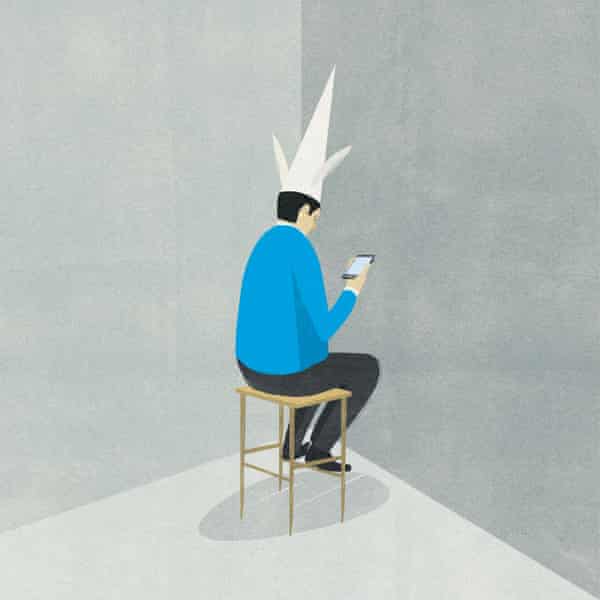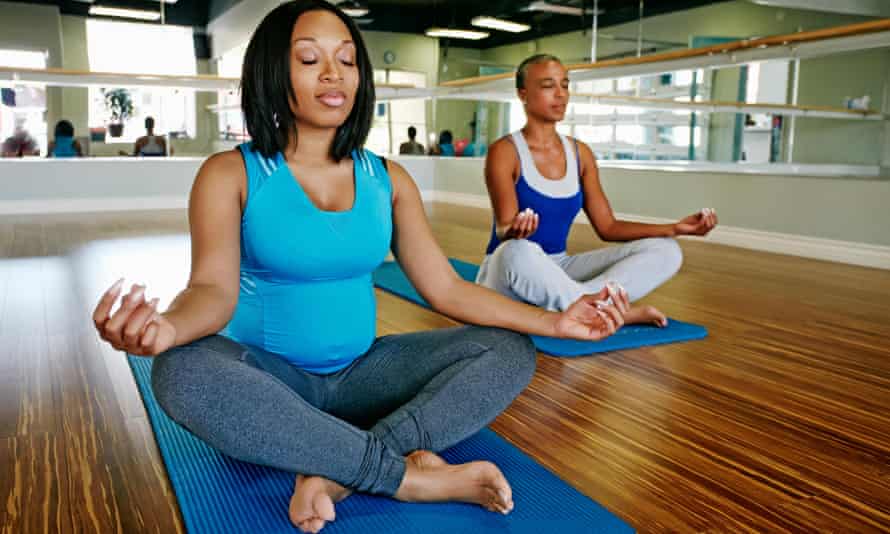How Long Does a Phone Activation Last Before You Have to Activate It Again. Boost Mobile
I t is difficult to imagine life before our personal and professional person worlds were so dominated and "switched on" via smartphones and the other devices that make us accessible and, crucially, and so hands distractible and interruptible every second of the day. This abiding fragmentation of our time and concentration has become the new normal, to which we take adapted with ease, but there is a downside: more and more experts are telling us that these interruptions and distractions take eroded our ability to concentrate.
We have known for a long fourth dimension that repeated interruptions impact concentration. In 2005, research carried out by Dr Glenn Wilson at London'due south Institute of Psychiatry plant that persistent interruptions and distractions at work had a profound issue. Those distracted by emails and phone calls saw a x-point fall in their IQ, twice that institute in studies on the touch on of smoking marijuana. More than half of the 1,100 participants said they e'er responded to an email immediately or as shortly equally possible, while 21% admitted they would interrupt a meeting to practise so. Constant interruptions tin accept the same effect every bit the loss of a night'due south sleep.
Nicholas Carr picked up on this again in an article in the Atlantic in 2008, before going on to publish his volume The Shallows 2 years later. "Immersing myself in a book or a lengthy article used to be piece of cake," he wrote. "My listen would go caught upwardly in the narrative or the turns of the statement, and I'd spend hours strolling through long stretches of prose. That's rarely the case any more. Now my concentration often starts to drift after 2 or iii pages. I go fidgety, lose the thread, begin looking for something else to do. I experience as if I'g always dragging my wayward brain dorsum to the text. The deep reading that used to come up naturally has go a struggle."

The impact of interruptions on individual productivity tin also be catastrophic. In 2002, it was reported that, on boilerplate, we experience an suspension every 8 minutes or about 7 or eight per hour. In an eight-hour day, that is about 60 interruptions. The boilerplate suspension takes about five minutes, so that is about five hours out of eight. And if it takes around xv minutes to resume the interrupted activity at a expert level of concentration, this means that we are never concentrating very well.
In August 2018, research from the UK'south telecoms regulator, Ofcom, reported that people bank check their smartphones on average every 12 minutes during their waking hours, with 71% proverb they never turn their telephone off and 40% saying they check them inside five minutes of waking. Both Facebook and Instagram appear they were developing new tools designed to limit usage in response to claims that excessive social media use tin have a negative touch on on mental health.
Continuous partial attention – or CPA – was a phrase coined past the ex-Apple and Microsoft consultant Linda Stone. Past adopting an always-on, anywhere, anytime, any place behaviour, nosotros exist in a abiding land of alertness that scans the world only never really gives our full attention to anything. In the curt term, we adjust well to these demands, but in the long term the stress hormones adrenaline and cortisol create a physiological hyper-warning state that is always scanning for stimuli, provoking a sense of addiction temporarily assuaged past checking in.
Myth of multitasking

With our heavy use of digital media, it could exist said that nosotros accept taken multitasking to new heights, only we're not actually multitasking; rather, we are switching speedily between different activities. Adrenaline and cortisol are designed to back up us through bursts of intense activeness, but in the long term cortisol tin knock out the experience-good hormones serotonin and dopamine in the brain, which help u.s.a. experience calm and happy, affecting our sleep and eye charge per unit and making usa experience jittery.
It would seem then that this physiological adaptation, fostered past our behaviour, is a predominant reason for the poor concentration then many people report. The fact that we are the crusade of this is, paradoxically, skilful news since it hands back to us the potential to change our behaviour and reclaim the encephalon function and cognitive wellness that's been disrupted by our digitally enhanced lives. And this may fifty-fifty be more important than just improving our levels of concentration. Constant, high levels of circulating stress hormones have an inflammatory and detrimental affect on brain cells, suggests the psychiatrist Edward Bullmore, who has written about the link betwixt inflammation and depression in his latest book, The Inflamed Mind. Depression, forth with anxiety, is a known factor in knocking out concentration.
Put simply, ameliorate concentration makes life easier and less stressful and we will be more productive. To brand this change ways reflecting on what we are doing to sabotage personal concentration, and so implementing steps towards behavioural change that will improve our chances of concentrating better. This means deliberately reducing distractions and existence more cocky-disciplined well-nigh our utilise of social media, which are increasingly urgent for the sake of our cerebral and mental health.
It takes about three weeks for a repeating behaviour to form a addiction, says Jeremy Dean, a psychologist and the author of Making Habits, Breaking Habits. Getting into a new habit will not happen overnight and adaptation can be incremental. Start by switching off smartphone alerts, or taking social media apps off your telephone, so switching off the device for increasingly long periods.
Practise concentration by finding things to do that specifically engage yous for a period of time to the exclusion of everything else. What is noticeable is that y'all cannot just become from a country of distraction to one of concentration, in the same way that most of us cannot autumn asleep the minute our caput hits the pillow. It takes a fleck of time and, with practice, becomes easier to achieve.
The 'five more than' rule

This is a elementary manner of learning to concentrate better. It goes like this: whenever you feel like quitting – but practice five more – 5 more minutes, five more exercises, five more pages – which volition extend your focus. The rule pushes you just across the point of frustration and helps build mental concentration. It's a grade of grooming as well as being a way of getting something accomplished.
Sitting all the same would seem an piece of cake thing to attain. But it is harder than it sounds. It is akin to meditation, which can be a useful style to improve concentration. In this instance, however, simply get in to a comfortable, supported position and sit withal and do zip for v minutes. Use it as a intermission between activities. Of course, if yous already do meditation, combine this with animate for a quick "time out".
Meditation and focus
Switching off from both external and internal distractions does non come easily. Learning how to exist more mindful, practising mindfulness or meditation, can all help facilitate greater concentration, not to the lowest degree because feeling calmer restores equilibrium and focus.
Most of us breathe poorly: we tend to over-exhale, taking 3 or four breaths using only the upper part of our lung chapters, when one practiced breath using the lungs more completely would serve u.s.a. meliorate. This shallow animate is very tiring, not only because we expend unnecessary muscular energy, but because we reduce our oxygen intake per jiff.
In its farthermost grade, over-breathing becomes hyperventilation, which tin trigger panic attacks. In all mindfulness or meditation do, breathing is key. So it'southward wise to learn good techniques kickoff. A daily do, starting with ten minutes and building on it, ways that the ability to take some restorative "time out" will also be bachelor to y'all:
-
Prevarication comfortably on the floor, knees bent, mentum tucked in – what Alexander Technique teachers phone call the "constructive rest position" – or sit upright in a chair, legs uncrossed, anxiety apartment on the floor.
-
Consciously relax your cervix and drop your shoulders, residual your arms by your sides with your palms turned upwards.
-
Breathe long and gently through your olfactory organ, into your belly until you meet it gently ascent, for a slow count of v.
-
Pause, and hold that jiff for a count of 5, so gently exhale through your oral fissure for some other count of v.
-
While doing this, effort to articulate your mind of all other thoughts, or if this is difficult close your optics and visualise a pebble dropping into a pool of water and gently sinking downwards.
-
Echo this breathing wheel 10 times; and then encounter how your regular breathing adjusts.
-
You tin can besides utilize this breathing technique at whatever time you lot experience tense or stressed, or as the basis of any meditation.
We all demand to take time out, and then ready a timer to signal a intermission, or use an app such every bit At-home.com. Or you tin just play a favourite music rail, knowing that it will give you lot a set amount of time in which to press pause and do nix.
Another effective technique for boosting concentration is counting backwards. Counting backwards in sevens from 1,000 might audio similar an practice in exasperation, but it does require y'all to concentrate very hard: try it. It requires persistence and the use of different skills, which for some may include visualising the numbers as you lot count. Whatsoever it takes, keep at it for long enough to completely focus and you'll likewise have the added bonus of finding that you accept, temporarily, cleared your caput of everything else for a few minutes.
Similarly, spelling words backwards is a expert manner to focus: start with words that are easy: domestic dog, box, cup, and then build upward to longer words – including nouns and more abstract words – such as absorber, blonde, endeavor, number – increasing the length and complexity of the give-and-take. Once more, this is an exercise that tin can be built on.
Another fashion to focus is to sit in a comfortable position and find a spot on the wall to stare at. This works all-time when you have no witting association with it to distract you – so, a black spot about two inches in diameter at eye level works well. Focus all your attention on this for around three minutes to beginning with (you can set a timer if this helps) and let any thoughts that ascend drift away, constantly returning your focus to the spot.
Anyone familiar with meditation will recognise this technique. If it helps to notice your breath, wearisome and steady this also, but always make your visual focus on the spot the priority. Skillful regularly, this tin can become so familiar information technology creates a resources on which to draw, enabling yous to consciously refocus at will, even without the visual prompt.
Watching the clock
An old-fashioned clock face with easily and a second hand is needed for this. Starting with the 2d mitt at the 12, focus intently on its progress around the clock face without allowing whatever distracting thoughts to intervene. Every time your concentration is interrupted past a devious thought, wait until the second hand is at the 12 again, and start again. Information technology'due south harder than information technology sounds and tin can feel very frustrating initially, simply once the ability is learnt it'south piece of cake to access again and again, whenever yous need to create a more concentrated state of heed.
Nosotros access so much information through what we come across, but often nosotros are not particularly observant about what we are looking at, leaving the states with only an impression or feeling about what we've seen. In an effort to improve concentration skills, it's worth because how looking at and and so visualising something, can reinforce concentration. Start by paying more attention, whether this is looking at a picture in an art gallery, or taking a bus ride, or just enjoying the scenery from a window. You don't accept to commit an exact graphic image to retention, merely engage with information technology, notice details, reverberate on information technology and, within a short time, you volition be able to close your eyes and visualise it. At that place is no right or wrong style to do this, it'south just an opportunity to practise focus and meliorate concentration.
There's a huge difference between hearing and listening. Learning to listen well starts quite cocky-consciously but volition likewise become a useful habit. Y'all can use music to practise this, the length of a rails giving you between iii to 5 minutes (or longer) on which to focus. Actually heed to the nuances of the music, its notes, cadences, instruments used, lyrics. Music is often simply a background dissonance simply real, complicated musical notation can be more than but pleasurable, it tin can be a real benefaction to helping relearn concentration skills.
Concrete exercise
For whatever extended period of exercise – whether it exist yoga, playing a team sport or dancing – the engagement of the brain with the body is also an do in concentration. Regular do also activates the trunk and this is beneficial for the brain.
A Dutch study of schoolchildren published in the Journal of Scientific discipline and Medicine in Sport in 2016 showed that interspersing lessons with a twenty-minute stretch of aerobic exercise measurably improved attention spans in the children that participated. Another 2014 study from the American University of Paediatrics, on the benefits of practice in 7 to 9-year-olds, not merely constitute that the children's concrete health improved equally they got fitter, but also their encephalon function, cognitive functioning and executive control.
Sleep

Poor sleep and being chronically under-slept affects concentration, while also reinforcing those stress hormones to compensate, making it a bit of a fell circle. Improving sleep cannot happen overnight, peculiarly if it is a chronic problem, only taking measures to improve this will yield results over a catamenia of weeks, rather than days.
One place to start is clearing your bedroom of TVs, computers and other technology. Although whatever type of light tin can inhibit sleep, research has shown that light towards the bluish cease of the spectrum is specially constructive at keeping you awake because it stimulates the retina in the eye and inhibits the secretion of melatonin from the pineal gland in the brain.
Computer screens, tablets, smartphones, flat-screen TVs and LED lighting all emit big amounts of bluish light, and it is of import to avert these earlier trying to sleep. Effectually 80% of people routinely utilise these devices running upwardly to bedtime, and amid eighteen to 24-year-olds this figure increases to 91%, co-ordinate to research carried out past Prof Richard Wiseman.
Amber-tinted glasses can cut out glare, and it is also possible to fit screens with commercially produced blueish-light blocking filters. Another solution, of course, is to avert all electronic devices earlier bed in order to help avert insomnia and improve sleep.
Reading for pleasure
One thing that many people who feel they accept lost the ability to concentrate mention is that reading a book for pleasure no longer works for them. We have got so used to skim reading for fast access to information that the need of a more sophisticated vocabulary, a complex plot construction or a novel's length can be difficult to appoint with. Like anything, single-minded attention may need relearning in order to bask reading for pleasure again, simply close reading in itself can exist a route to better concentration. To assist that, read from an actual book, not a screen: screens are too reminiscent of skim reading and just turning pages will slow your pace. Read for long plenty to engage your interest, at least thirty minutes: engagement in content takes time, simply will aid you read for longer.
Digital apps
Somewhat ironically, digital apps may accept their identify in monitoring, managing or restricting digital time, but carry in mind that they however continue you connected to digital devices. Ameliorate perchance to wean yourself abroad from excessive digital use past doing something alternative: read a book, go to a motion picture (where turning off phones is required), have a walk, eat a meal without checking … basically restore some sort of self-discipline through the benefit of alternate activities.
But if you must turn to a digital solution to solve a digital trouble, try these: track usage with Moment; access Facebook limiter; go Cold Turkey; endeavour Stay On Chore; use the App detox blocker; or pause phone habit with Space.
leightoncorephrearm.blogspot.com
Source: https://www.theguardian.com/lifeandstyle/2018/oct/14/the-lost-art-of-concentration-being-distracted-in-a-digital-world
0 Response to "How Long Does a Phone Activation Last Before You Have to Activate It Again. Boost Mobile"
Post a Comment